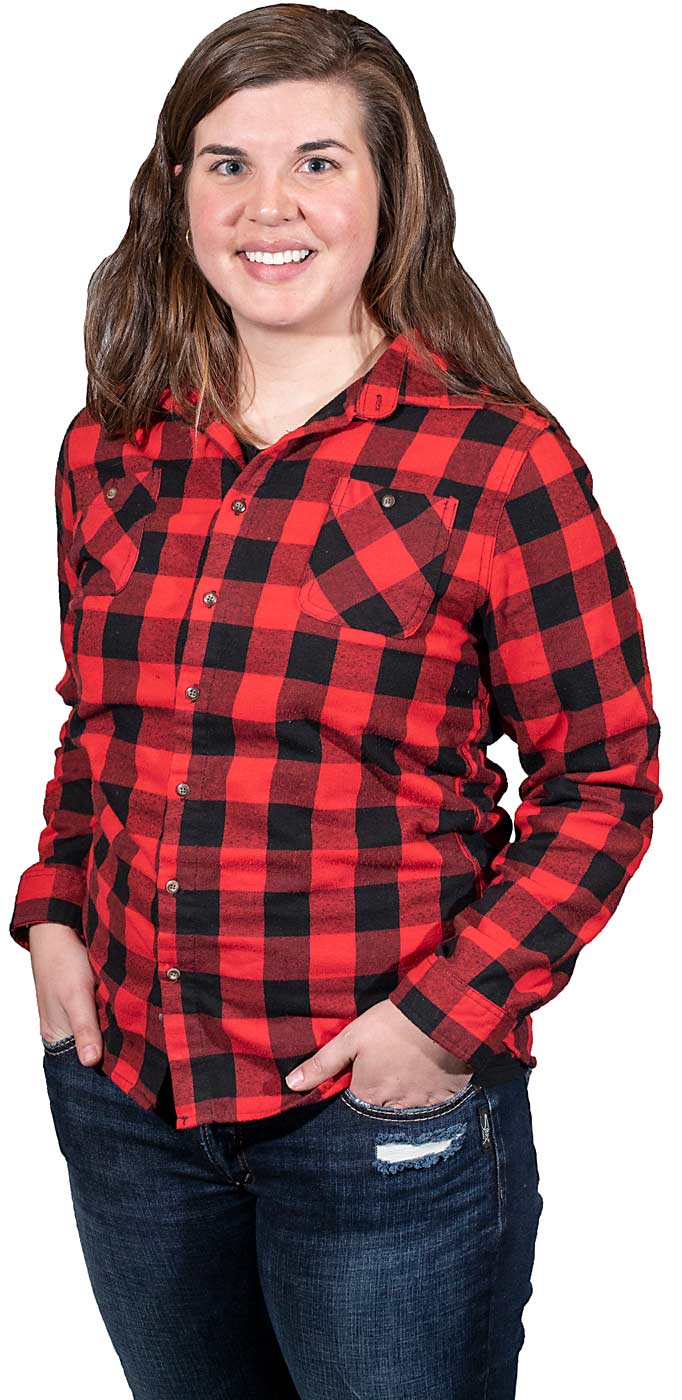family background / Maureen graduated from Walla Walla Community College’s viticulture and enology program and joined Shaw Vineyards as a viticulturist in 2018. She is the daughter of Carol and John O’Callaghan.
age/27
grower/Ephrata, Washington
crops/Grapes
business/Shaw Vineyards
How did you get your start in ag?
My dad works in water distribution for growers and I was exposed to ag pretty early on in my life. I grew up with a pretty deep understanding and appreciation of what ag is to the state and I wanted to contribute.
I started college originally with a chemistry focus at Washington State University, then went into soil sciences and then viticulture and enology through the program at Walla Walla Community College. I wanted to do something practical and physical instead of academic.
I really fell in love with classes. I also had an opportunity to go to Australia for a year and worked for a winery as an enologist.
That year working with wine reaffirmed my feeling that I wanted to be outside working with the vines. The plants are where my heart was telling me to go. So, I decided to return to the Columbia Basin and try my hand finding a spot with a vineyard in the Red Mountain AVA.
Why did you switch from enology to viticulture?
I made the decision to work in the vineyard because I wanted to work outside. Even when you have a bad day, you’re outside and I didn’t realize how much that would impact me in a quality-of-life type of way.
If I had to distill it down to one reason: You get to be outside all the time watching everything change and grow. It feels a lot less routine than being in a lab doing trials after trials after trials.
Of course, you do see development and change in the wines in the lab, but I really liked seeing change from the soil up. It’s where I found my focus.
What are your responsibilities as a viticulturist?
I’m not a supervisor and I don’t have people reporting to me, but I’m pretty autonomous working each day. Because of that, it’s essential to check in with everyone.
I only have two eyes and two feet — I can only go so far and see so much. By working with the crew, the irrigating team and managers, I try to take all of what I learn and turn it into meaningful information. Then I communicate it to the team, so everyone knows what the status is of the blocks.
Things can change so fast in the field. My manager says, ‘As soon as you start something, you’re two weeks behind.’ Everything feels like it’s just push, push, push.
Are there lab skills that’ve helped you in the vineyard?
The lab skills that benefit me now as a grower help me talk with winemakers and understand what they’re talking about. I don’t think about sulfur trials when I’m scouting for mealybugs.
I’m not thinking about doing juice trials until the fruit is ripe. I think knowing the process is important to have a well-rounded and deeper understanding of how everything works.
It’s an asset when talking with a winemaker at their level in a customer/supplier relationship.
What challenges are you working through?
My current challenges are coming from the pest management side with insects and disease pressures. Weather conditions are a constant stressor.
Leaffolder moth has been a top pest that’s coming into the area. I’m doing a lot of thinking about how to prevent it and, once we get it, how it will impact the grape quality.
I don’t really make the decision on how we manage for it, but I’m gathering data for things like this out in the field. Mildew pressure is huge, but it’s weather-dependent. Mildew is something you’re always on the lookout for.
What advice would you give a younger grower?
Ask questions that you want to have answers to, even if you’re the only one in the room who doesn’t know the answer. Once you ask it, then 100 percent of the people in the room understand what’s going on.
Asking those questions will open doors toward other topics that you’ve never been exposed to. You have to start somewhere. Another thing that helps me is note-taking. I write down questions, topics, bullet points and then email them to myself.
I always have a notepad in my pocket. Doing this helps keep those questions ready and available throughout the day. When I describe my job to people, (it sounds like) I’m frustrated a lot and tired all the time.
There’s a lot of things that go wrong and I have stressful moments, but I’m so thankful that I feel all of those things in this job. At the end of the day, everything shifts toward excitement for the future. I feel really lucky to be a young person in this industry.
—TJ Mullinax







[…] READ MORE… […]